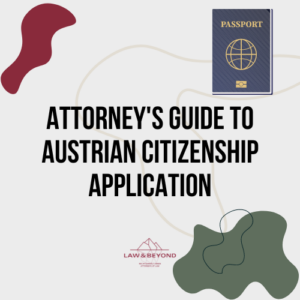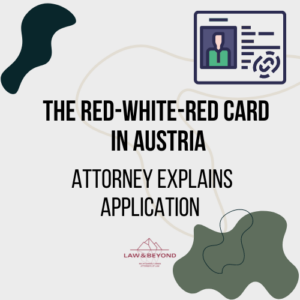
Marriages from abroad?
Many people who live in Austria are married. Some have married in Austria, others have not married in Austria but live together in Austria. The children go to school here and if one wants to get divorced, Austrian courts are involved. Time and again, therefore, it has to be assessed how to deal with marriages that have been contracted abroad. Especially when these marriages from abroad are no longer in such good shape. Sometimes it is a question of whether one has to divorce in Austria at all or whether the marriage is simply invalid anyway. Especially if the marriage concluded abroad does not meet the requirements that one has to fulfil in order to get married in Austria.
Marriage via Whatsapp?
Recently, the Supreme Court (OGH 5 Ob 42/22w) dealt with a somewhat unusual case. It concerned a couple from Iran. The man had already come to Austria in 2012. Before leaving Iran, the man had given his mother a general power of attorney to manage his affairs. He ended up having a long-distance relationship with a woman who lived in Iran. The woman was supposed to come to Austria. The idea was to live together after the woman arrived in Austria, and then to marry. However, according to Iranian law, it was only possible for the woman to leave with the consent of her father or husband. The woman’s father, in turn, conditioned his consent for her to leave the country on marriage. The husband expressed that he did not care how the woman managed her departure. The woman’s parents, the man’s parents and the woman herself went to see a notary in Tehran. The man’s mother contacted him via Whatsapp and asked him if he wanted to marry the woman. The man was at work and told his mother to do what she wanted. Then he hung up. The marriage was then contracted in Iran. A few years later, the couple separated in Austria and the question arose whether the marriage was valid at all. The Supreme Court stated that in order for a marriage to be valid in Austria, a certain “form” must be observed for the marriage itself. If a marriage is concluded abroad, the nationality (personal statute) of the fiancées is also relevant. However, it is sufficient per se that the rules of the place where the marriage was concluded are observed.
Since they were Iranian citizens and according to Iranian law the marriage could thus be legally concluded, it was also valid in Austria. In Austria, a marriage cannot be concluded by proxy. The engaged couple must personally declare their will to marry before the registrar. The fact that other rules apply in Austria alone is not a criterion. The crux of the matter, according to the Supreme Court, was the will to marry. According to the Supreme Court, there was no doubt that the man wanted to marry the woman. Therefore, the marriage – even if it was concluded by proxy – did not violate the basic values of the Austrian legal system and was therefore valid.
What does the recognition of marriages from abroad have to do with Austrian fundamental values?
For marriages concluded in Austria, the Austrian (formal) regulations must be fulfilled in order for the marriage to be valid. For example, you have to say “yes” to each other in person in front of a registrar (and not in a church). Foreigners who marry in Austria must also comply with Austrian regulations. In principle, marriages contracted abroad are also recognised in Austria, as long as the local rules are observed at the time of the marriage. Even if these marriages are arranged in a way that would not be permitted in Austria. However, there are exceptions to this: Namely, if this led to a result that is incompatible with the basic values of the Austrian legal system.
What violates the fundamental values of the Austrian legal system?
“Basic values of the legal system” sounds a bit unwieldy. What is meant by this? It is actually not so easy to define. Ultimately, it is individual case decisions that courts have to make here. Austrian constitutional principles play a role in assessing whether something violates basic values of the legal order. Personal freedom, equal rights, the prohibition of discrimination on the basis of origin, ethnicity and religion are part of the scope of protection. Or also single marriage, the prohibition of child marriage and compulsory marriage and equal treatment of the sexes (9Ob34/10f).
Furthermore, it is not only necessary that the foreign law or regulation is in itself is objectionable, but also that it would be objectionable to apply it in Austria and, moreover, that there is a sufficiently large domestic connection (RIS-Justiz RS0110743).
READ NEXT
Residence permit: What if it is linked to marriage? – Law & Beyond (lawandbeyond.at)
International Divorce – Law & Beyond (lawandbeyond.at)
Parental Alienation Syndrome – Law & Beyond (lawandbeyond.at)






No comment yet, add your voice below!